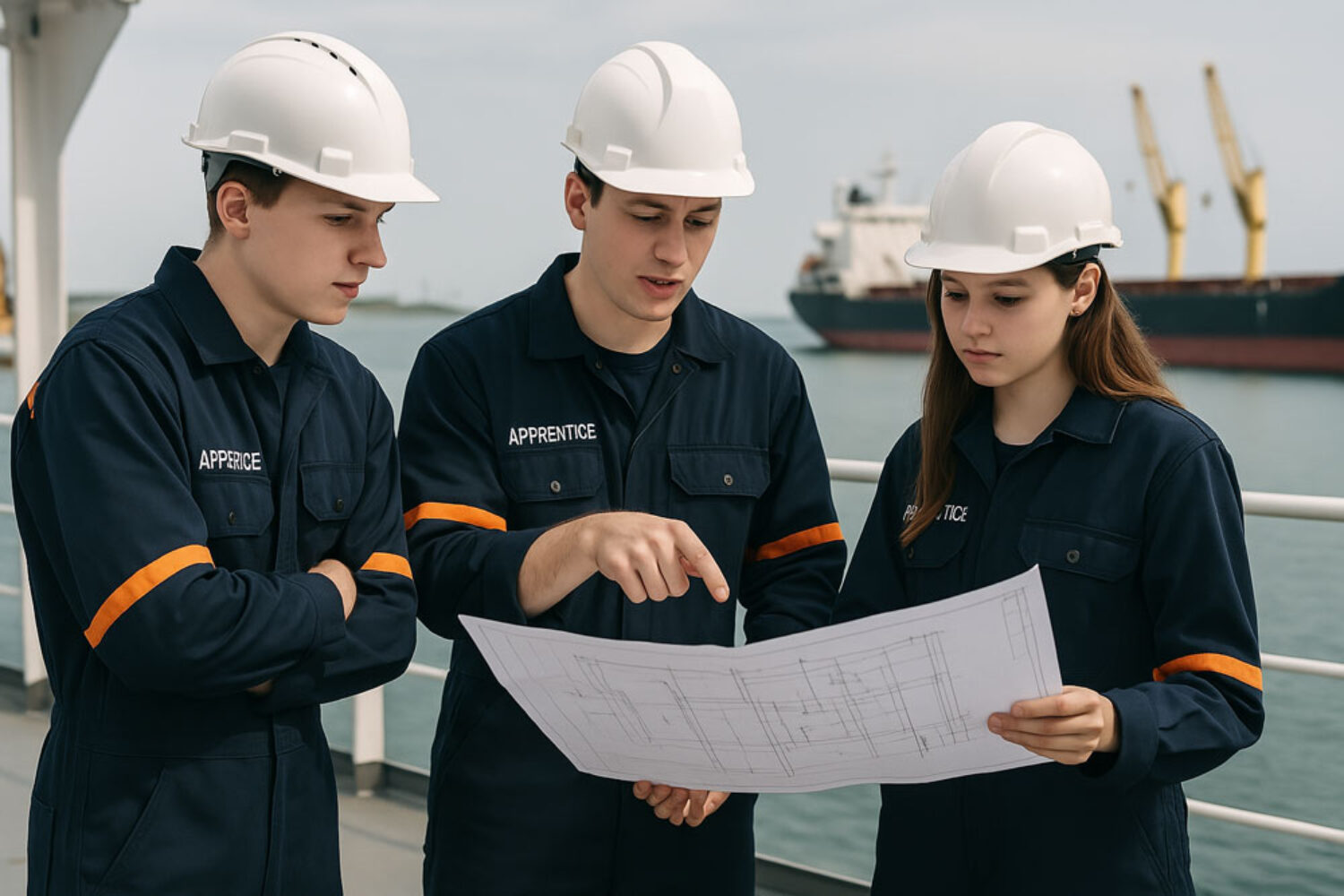Interest in German maritime shipping is developing positively: there were significantly more new trainees in 2024 than in the previous year.
The number of female trainees in particular has risen sharply. “In recent years, numerous measures have been taken to attract young talent to the German maritime shipping industry and strengthen the shipping industry as a location,” said Sabine Zeller, Managing Director of the Vocational Training Center for Maritime Shipping (BBS). “I am delighted that these measures are now bearing fruit. We were able to conclude around 18% more training contracts in ship mechanic training in 2024 than in the previous year. The increase in the number of female trainees from 12 to 23, i.e. by more than 90%, is particularly impressive.”
According to the BBS annual report, 141 new training contracts were concluded in 2024, almost 40% of which are trainees with a secondary school leaving certificate.
The German maritime shipping industry is facing a “multitude of challenges”, characterized by global change, technological innovations and, last but not least, ecological requirements, the association said. Training plays a central role in being able to react to all these changes. This is the only way to make the industry fit for the future, both quantitatively and qualitatively. “A key objective is to get young people interested in the industry and offer them attractive career prospects,” says the BBS. “The joint initiatives of players in the maritime industry are particularly noteworthy here.”
More trainees opt for shipping
Despite temporary declines in the number of apprenticeships, a stabilization could already be observed in 2020. Although the Covid-19 pandemic led to renewed challenges, there is now a clear recovery after a weak upward trend in 2022 – according to the BBS, this is evidence of growing interest in shipping on the one hand and confidence in the future viability of the industry on the other. The rising number of apprenticeships is therefore not only a reaction to economic recovery, but also a sign that the need for qualified specialists in the areas of digitalization, sustainability and technology has been recognized.
Digitalization and automation of ships are becoming increasingly important. The use of artificial intelligence (AI) and autonomous systems on ships is changing the demands placed on trainees. Prospective seafarers are expected to acquire not only traditional nautical and technical skills, but also knowledge in the operation and maintenance of digital systems and automation technologies. There is also an increased focus on environmental and climate protection, driven by stricter emissions regulations and the introduction of new technologies and alternative fuels. “Today’s trainees are tomorrow’s sustainability experts – they learn how to use low-emission drives, energy-efficient technologies and innovative solutions for more environmentally friendly shipping,” said the BBS.
Want to learn more about how AI is already implemented in shipping, listen to the HANSA.newscast interview with Florian Heinemann from Hapag-Loyd in episode 51 on AI-driven change.
#51 AI-Driven Change: Sustainability and Innovation at Hapag-Lloyd. Interview with Florian Heinemann













